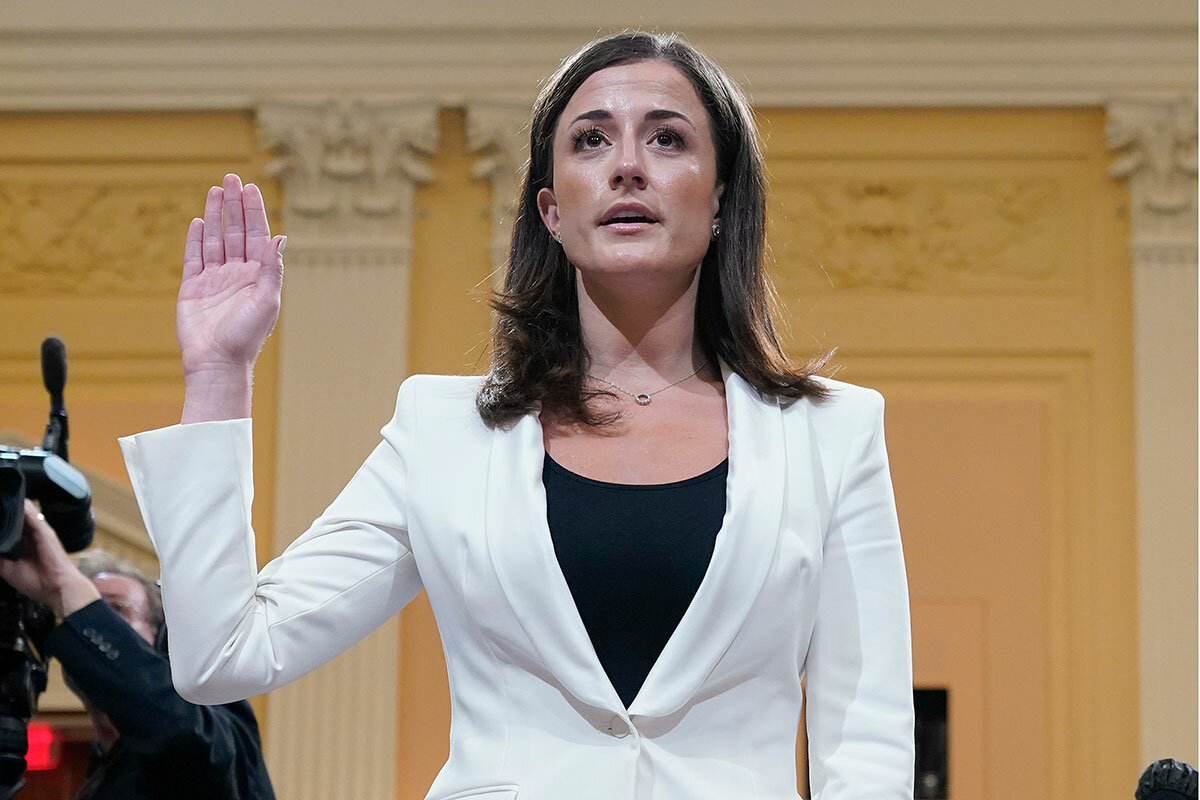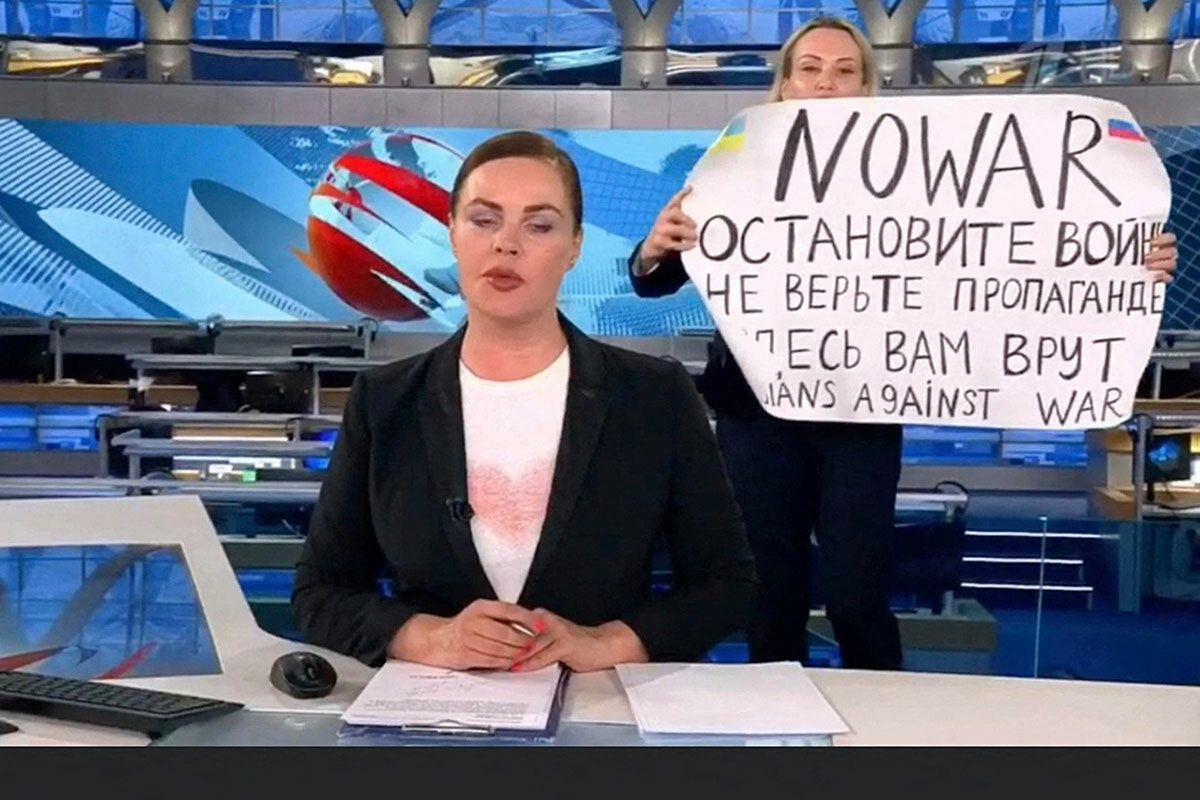Moral moments matter: The power of individual choice
Loading...
| London
They may sometimes seem trivial: a few words spoken over the phone, or scrawled across a sheet of paper.
But they can be as consequential as any of the speeches and policy pronouncements that dominate our discussion of world politics.
They are the actions and decisions that individuals take – not from any conscious desire to act heroically, but simply because they felt like the right thing to do.
Why We Wrote This
A story focused onAgainst a somber geopolitical background, moments of moral clarity illuminated the scene in 2022, as individuals did what they felt was the right thing to do.
And as we turn the page from the fraught geopolitics of 2022, it is worth stepping back and recognizing the significance – and lasting power – of such moments of moral clarity.
Two in particular stand out like bookends in the tumultuous year that has just ended.
The first came on Feb. 26. It comprised just six words, from a former comedian and television actor who, in an extraordinary career change, had become the president of Ukraine.
Forty-eight hours earlier, Volodymyr Zelenskyy’s country had suffered a full-scale Russian invasion aimed at eliminating both him and an independent Ukraine. His key ally, America, was offering to evacuate him so he could lead the resistance from abroad.
The obvious response seemed a grateful “yes.” Russia was pushing tens of thousands of troops across the border, and had many more tanks, missiles, and aircraft than Ukraine could muster.
Instead, Mr. Zelenskyy turned Washington down, with a reply that set the tone for Ukraine’s fortitude. “I need ammunition, not a ride.”
That same sense of clarity distinguished the even more unlikely protagonist in the year’s other bookend moment, which involved the inquiry into the Jan. 6, 2021 mob assault on the U.S. Capitol.
Cassidy Hutchinson had been in her mid-20s, just out of college. But after interning on Capitol Hill and in Donald Trump’s White House, she’d become the top aide to his chief-of-staff, Mark Meadows.
She is now known to millions of Americans. Her public testimony made her the Jan. 6 inquiry’s star witness to what was going on at the highest levels in the White House before, during, and after the attack on the Capitol.
But at least as compelling is the soul-searching that led her to provide that account – revealed in the transcript, released late last year, of a closed-door conversation with the committee.
In two earlier appearances, she had answered many of the inquiry panel’s questions by saying she simply “didn’t recall.” She’d been reassured by her lawyer that this wasn’t actually lying. And besides, the committee couldn’t know what she did or didn’t remember.
Yet in her own mind, this was lying. It was wrong. And even if the committee didn’t know she was withholding information, she knew.
So ultimately, she decided that despite pressure to hold the line, and an abiding loyalty to Mr. Meadows and others in the White House, she could not live with that knowledge. In the eloquent words of a friend in whom she’d confided, that would have meant “failing the mirror test” – being unable to face herself.
That kind of internal reckoning has also led others to speak out over the past year when silence would have been easier, people like Moscow television producer Marina Ovsyannikova. A few weeks into President Vladimir Putin’s war on Ukraine, she strode onto the set of Russia’s main nightly news broadcast holding a sign saying: “No war! Don’t believe the propaganda. They’re lying to you here.”
Or like the young Chinese citizens who stood holding blank sheets of paper, to dramatize the government’s draconian censorship regime, during the protests that helped persuade President Xi Jinping to abandon his “zero-COVID” lockdowns.
And the countless Iranians who, despite a violent crackdown by security forces, have persisted in chanting their support for “women … life … freedom.”
Often, such individual actions don’t directly alter the course of events.
But they do convey a powerful message: That such choices of conscience, however difficult, are possible. And that not acting is also a choice.
Recent history – the ethnic slaughters in Bosnia and Rwanda in the 1990s, and Nazi Germany’s mass murder of the Jews of Europe in the 1940s – has reinforced that message on an even larger scale.
During each of these atrocities some people stood out from their neighbors by making a choice of conscience, often risking their lives to help the victims. A filmmaker friend of mine documented one especially moving example: the inhabitants of the southern French village of Chambon-sur-Lignon, who hid and ultimately saved thousands of Jews during the Nazi occupation.
Tragically, many more people abetted the killing in Bosnia, Rwanda, and Europe than tried to hinder it.
Yet the role of another group, larger than either, was also critical to what happened. As the late Nobel-winning author and Holocaust survivor Elie Wiesel memorably said of all genocides, “what hurts the victim most is not the cruelty of the oppressor.”
Rather, he said, it was “the silence of the bystander.”








